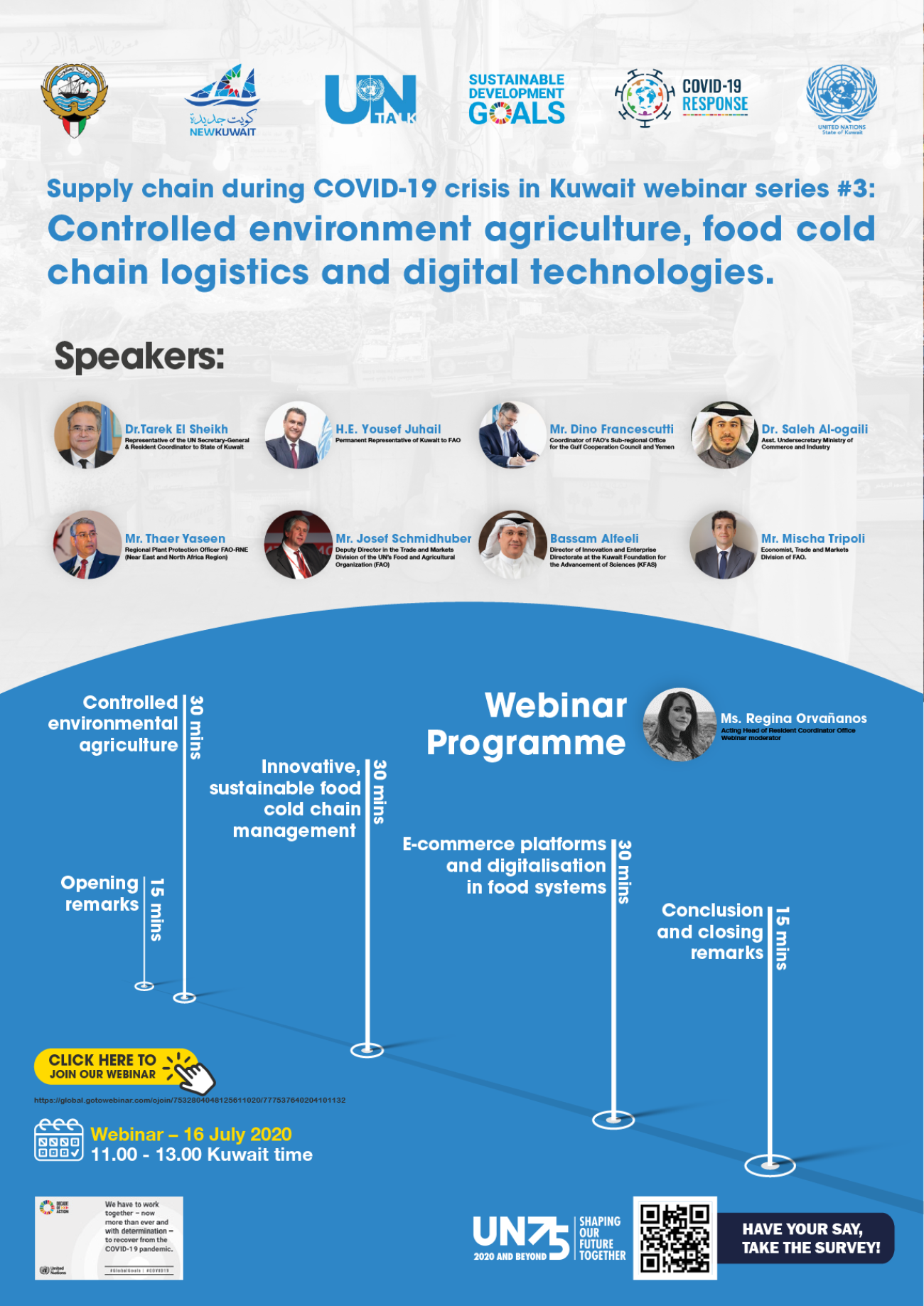Managing Broken Supply Chain During COVID-19 Crisis in Kuwait discussion series
Given exponential dynamics of COVID-19, the supply chain is critical to getting goods and services quickly, safely and securely to those at risk of infection. The supply chain sustainability is a particularly essential for Kuwait as its economy is highly vulnerable to the global and regional value chain, with more than 80% of goods exported to and imported from outside the region and in fact as a net importer when oil related exports are excluded. In this context, supply chain resilience planning requires holistic approaches to manage the broken supply chain by building in enough flexibility to protect against future disruptions. UNOPS provided a strategic framework on the concepts of supply chain resilience and resilience planning, as well as the important role of public policies, particularly on the trade challenges due to COVID-19.
Taking this initiative on supply chain resilience planning into account in a timely and effective manner, the Kuwaiti government and businesses should best utilize regional transport and logistics networks, including Observatory on Border Crossings Status due to COVID-19 in which ESCWA addressed the joint efforts of the UN Regional Commissions, in cooperation with other International Organizations, to provide solutions, including standards, guidelines, metrics and methodologies. This would immediately help the government and business to keep transport networks and borders operational to facilitate the flow of goods and services, while seeking for greater opportunities to configure and tailor alternative supply chain networks.
The session moved on to narrowly focus on the challenges of food supply chain disruptions where FAO experts highlighted the important role that small businesses (farm enterprises, traders, food manufacturers, distributors and retailers) play in functioning national food systems during the crisis, focusing on recommendations that target a mix of ministries, public institutions, food industry associations, local business service providers and chambers of commerce. Furthermore, FAO introduced mechanism for food market monitoring that enables to sensitizing global and national risks to supply chain throughout a series of managing demand, tracking, inbound/outbound logistics and transport. This approach should be technology-led, leveraging platforms that support applied analytics to address various challenges that arise from growing product complexity in Kuwait.






